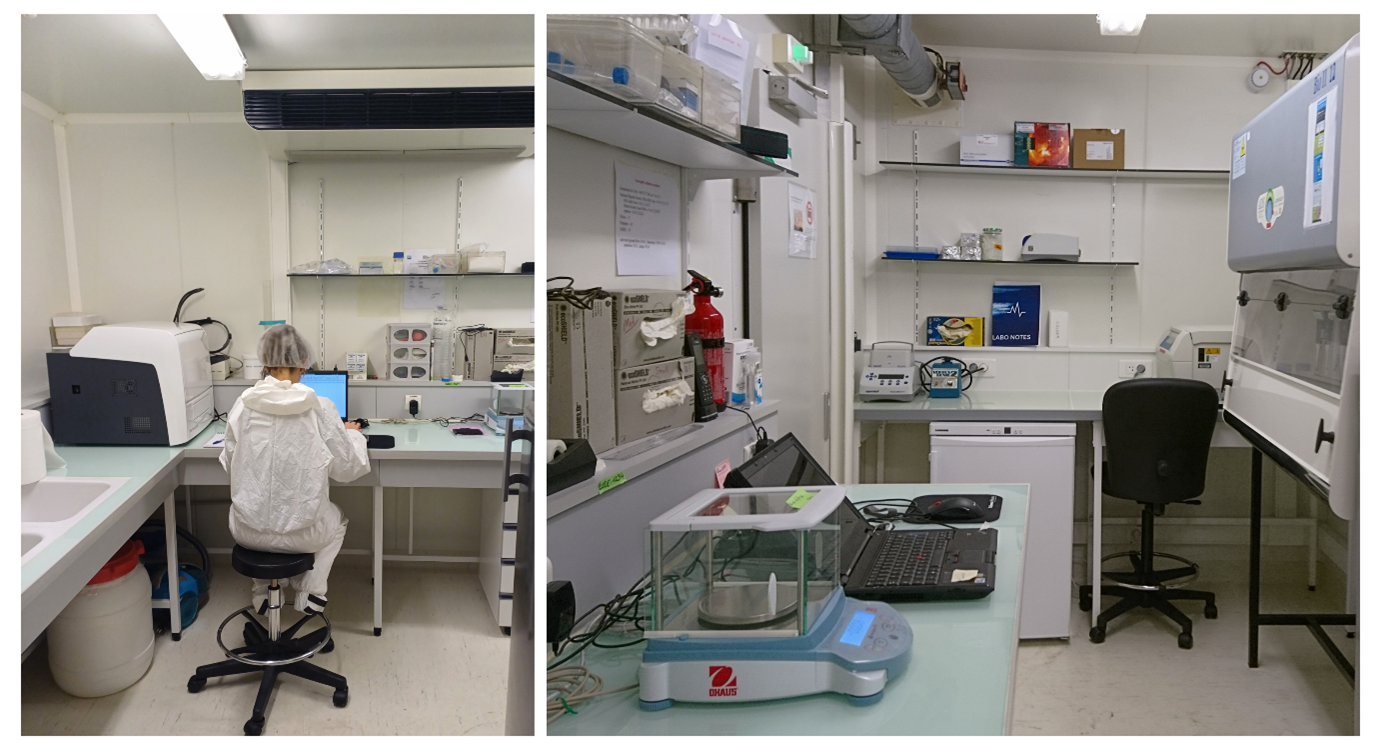Extension of the Quarantine Agreement of the EBCL, USDA, ARS Laboratory for Work with Exotic Phytopathogens
By Gaylord Desurmont
The European Biological Control Laboratory (EBCL USDA ARS) located in Montpellier, France since 1999, recently received an extension of its quarantine agreement for work with exotic phytopathogens. Quarantine work with exotic plant pathogens is crucial for safeguarding agricultural and natural ecosystems against devastating diseases.
This extension, which became effective in August 2023, will allow the EBCL laboratory to import and manipulate in its quarantine building exotic phytopathogens for studies in biological control and biologically-based management strategies against plant pests and diseases. Importations of exotic pathogens in quarantine can only be realized under certain conditions, following French and European regulations on quarantine organisms. Before each importation, letters of authorization of importation (LOAs) must be obtained from the French authorities for plant protection, the Direction Régionale de l'Alimentation, de l'Agriculture et de la Forêt (DRAAF) for the Occitanie region. Manipulations in quarantine must follow precise guidelines that are described in the EBCL quarantine agreement, which is renewed every 5 years by the DRAAF Occitanie.
Historically, EBCL USDA ARS has worked with plant pathogens as well as insect pathogens, but this activity gradually ceased and work with exotic phytopathogens was removed from the quarantine agreement in 2006. The 2023 extension follows a renewed interest for investigating novel strategies to manage plant diseases.

EBCL’s quarantine building certified for work with phytopathogens.
In the quarantine, researchers operate within strictly controlled facilities equipped with state-of-the-art containment measures. These facilities adhere to stringent biosecurity protocols to prevent accidental release and spread of the pathogens. Researchers wear protective gear and work under negative pressure, to minimize the risk of pathogen escape. Every step, from sample collection to disposal, is carefully monitored and regulated to ensure the safety of both the researchers and the surrounding environment.
The first research project that has been started at EBCL since obtaining the extension of its quarantine agreement is focused on the bacteria Xylella fastidiosa.
Xylella fastidiosa is a bacterial plant pathogen that can infect a wide range of plants, including agricultural crops, ornamental plants, and trees. It spreads primarily through xylem fluid. Once infected, the bacteria can cause a variety of symptoms, including leaf scorch, wilting, and eventual death of the plant. One of the main reasons why Xylella fastidiosa is a significant problem is its ability to cause devastating diseases in economically important crops such as grapevines, citrus trees, olives, and various fruit and nut trees. Research conducted at EBCL will investigate novel management strategies to limit the impact of this bacteria in the field.
In addition to this extension of its quarantine agreement, EBCL is currently in the process of renewing its general quarantine agreement for work with exotic arthropods and plants. Its current agreement lasts until July 2024 and should be renewed for a duration of 5 years.
For inquiries regarding this article contact: ebcl@ars-ebcl.org.
The European Biological Control Laboratory (EBCL) was established in 1991 near Montpellier, France. EBCL was created by the merger of the former European Parasite Laboratory, established in Paris in 1919, and the Biological Control of Weeds Laboratory in Rome. EBCL has a satellite laboratory in Thessaloniki, Greece. As the only USDA ARS-operated laboratory outside the United States, EBCL develops biological control technologies which can be used to suppress invading weeds and insect pests of Eurasian origin. EBCL researchers do this by searching for natural enemies (insects, mites, and pathogens) in their native habitat, determining their identity, testing their host specificity and potential impact in laboratory and field experiments, and shipping promising organisms to the U.S. for further testing as biological control agents. EBCL collaborates with scientists in many countries in Europe, Asia, and Africa to explore in regions of origin of the target weeds and insects.
